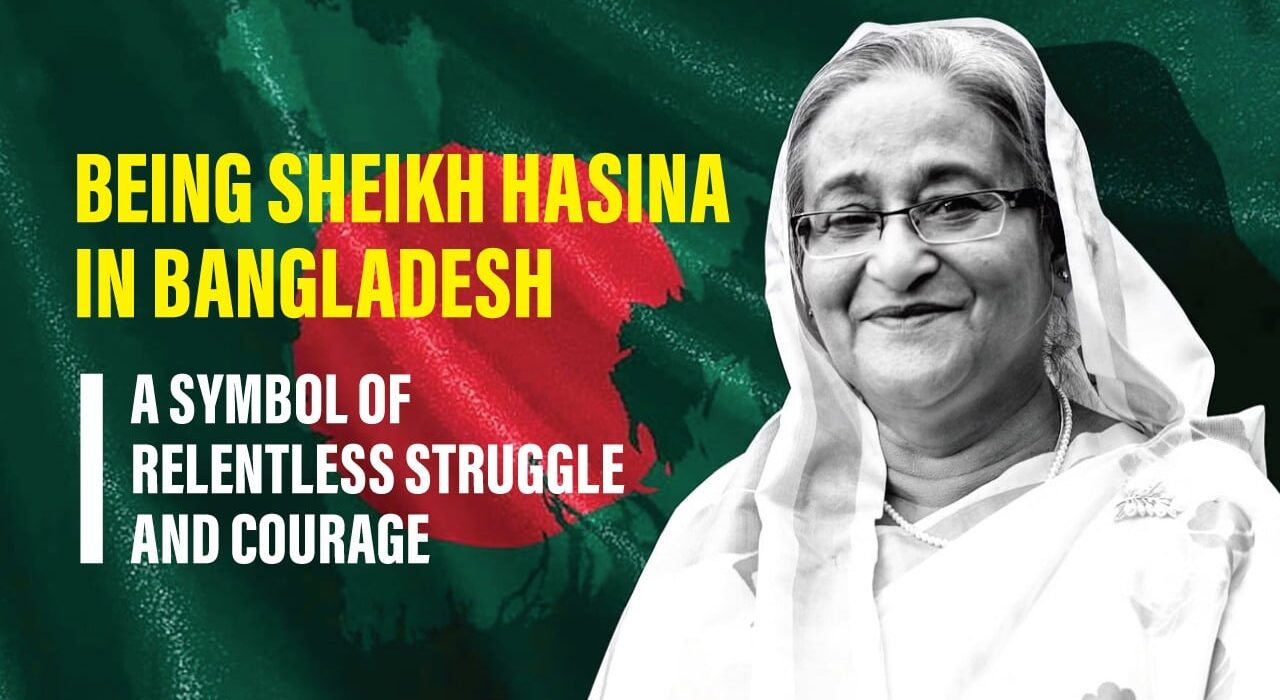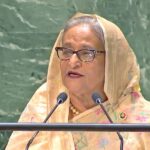Sahidul Hasan Khokon:
With the eruption of Covid pandemic in Bangladesh, all the Western outlets came up in unison with a veritable projection for the youngest nation in South Asia: the leadership is destined to fail miserably, resulting in millions of deaths, the health system would collapse and, the premier should not be spared.
Take the Economist story in mid-June 2020, which cited the theInternational Centre for Diarrheal Disease Research, Bangladesh Chief Dr John D Clements but peddled misleading information claiming that Dhaka City had as many as 7,50,000 cases of Covid-19 patients at that time.
On June 11, 2020, taking a dig at the leadership, the Telegraph published a report titled “Coronavirus exposes the deep divide in Bangladesh society”, claiming that a segment of the population was critical of the government’s decision to relax the lockdown quite early, enabling the rapid spread of Covid 19. German public broadcaster Deutsche Welle, in another report titled “Coronavirus: Economy down, poverty up in Bangladesh” published on June 10, 2020, claimed that at the height of pandemic the country was experiencing a high degree of poverty.
Joining the bandwagon, on April 7, 2020, Al-Jazeera ran another scary piece citing WHO where they claimed that two million people could die in Bangladesh due to Covid 19, as the authorities were not prepared to cope with the outbreak’s challenges.
But just a year down the line all such doomsday projections not only did ring hollow rather the emergence of the country as the top performer in South Asia, according to global projection, tore apart the inherent bias of a section of western press reportedly stand exposed for peddling biased narratives.
In the Nikkei’s Covid-19 Recovery Index, Bangladesh emerged top performer while all global powers including US, Japan and top global body WHO showered glowing endorsement on the deft and judicious leadership of Sheikh Hasina, a lesson worth following with lower death toll, an array of safety net schemes to offset poverty and higher vaccination record.
Dubbed by eminent columnist Petula Dovrak as “woman of force”, Sheikh Hasina, who steered her country with steely resolve to offset the dire impact of Covid 19, turns 77 today.
Already made her mark as the longest serving female head of the state, Sheikh Hasina’s raw courage, having survived at least 19 assasination attempts, is incomparable to Angela Merkel or Jacinda Arden.
Anchored on the motto “Friendship to All, Malice to None”, her foreign policy paid reach dividends for the country as vaccines have been collected from India,China, US and the global alliance, a best bet for her people while introduction of free vaccination campaign.
Now take the case of her determined leadership in the face of hasty refusal of World Bank from funding Padma Bridge, country’s largest infrastructure project, on grounds of flimsy evidence of corruption. Following WB’s pullout, she did not budge rather went ahead with a bold move to build the bridge with self-funding, turning adversity into opportunity.
As of September 20, the bridge over the mighty treacherous river has crossed the milestone of Tk1,000 crore in toll collection since its inauguration on June 26 last year, another marker testifying why the bridge is needed for connecting the entire southern region with the capital.
Just like it did with the pandemic, this green delta can ride out the latest hurdles too, although the economy has endured some real troubles, thanks to her decisive leadership.
Here’s a look into the trials and tribulations of Sheikh Hasina on her 77th birthday.
Relentless struggle
Driven by the strong conviction, inherited from her father to set people free from oppressor, in her student life Sheikh Hasina was instrumental to defy Pakistan’s army in the country’s struggle for independence. She was involved with student politics while in college and was elected the vice-president of the students’ union at Government Intermediate College (now Begum Badrunnesa Government Girls’ College) for the 1966-67 term. Not to be outdone at the grueling massacre of her father ‘Bangabandhu’ Sheikh Mujibur Rahman, mother, brother and almost all family members, she, in defiance of military rule, returned to the country and undertook nine long years of arduous battle against military dictator General Ershad’s rule, known as the “fight for people’s right to vote. She and her sister alongside their children survived 1975 massacre as they were abroad.
For someone who had seen almost entire family wiped out in a violent coup, the call to continue in politics requires an audacious urge to finish the unfinished agenda of her father : build Sonar Bangla a country her father envisioned free of hunger and poverty. Nothing could stop her indomitable courage even at least 19 assassination attempts by terror groups and radical forces backed by opposition party BNP.
Arrested without warrant by the military-backed caretaker Government in 2007, daunting times in prison, smear campaigns carried out against her during that regime as later admitted by Mahfuz Anam, editor of the country’s leading English daily, who confessed to producing unverified information fed by the country’s intelligence agency DGFI, are surely exemplary for future leaders.
Fight against terror
The last regime of BNP Jamaat, Bangladesh propped up in global media for all the wrong reasons. Leading analysts like Bertil Litner described the country “a cocoon for terror”, Far Eastern Economic Review, April 4, 2002, Elisa Grisworld predicted an Afgan style Islamist revolution in the article “The next Islamist Revolution”, published New York Times on January 23, 2005, Alex Perry’s “Deadly Cargo” in Times Magazine (October 14,2002) are some among a litany of investigative pieces appeared back then detailing the state patronage of militant backing. A deep rooted nexus among state apparatus including Tarique Rahman, then emerged as defacto leader, militants and transnational terrorists roam scot free. But gone are these days of terror and militants, thanks to the courageous leadership of the Premier.
Distributive Justice: Leaving no one behind
For a country that topped the global corruption index under BNP-Jamaat rule for almost five years, reducing poverty, achieving gender parity in school education, and bringing down maternal mortality are some achievements that many other developing countries should take a cue from. Sheikh Hasina’s biggest success was how her policies turned around millions of lives. Under her watch, homes for the homeless — a scheme rolled out by her office — has paid dividends for thousands of lives with a target to end homelessness.
Moreover a record 4000 per cent rise in social safety net, meteoric rise in different human development indices, advancement of girls education with stipends are some core features likely to set her apart from any other political leaders. A recent survey by IRI revealed she remains the most popular leader of her country. Even during the pandemic, her stimulus packages for the affected families and some cash incentives alongside food rationing helped lower-income groups survive unprecedented crises like lockdowns.
Humanitarian face
Ever since the Myanmar junta launched crackdown on Rohingays that triggered one of the largest migration crisis, Sheikh Hasina, unlike many western nation leaders, opened up borders and hosting more than a million Rohingya people. Right from the outset, at her directives despite limited resources providing basic provisions of their life like food, shelter and healthcare in a coordinated approach where UNHCR is actively engaged. Almost five years have elapsed and the world is doing little but the stateswoman remained resilient and still kept sheltering and feeding these people






